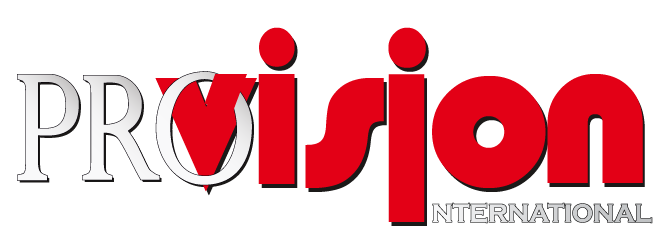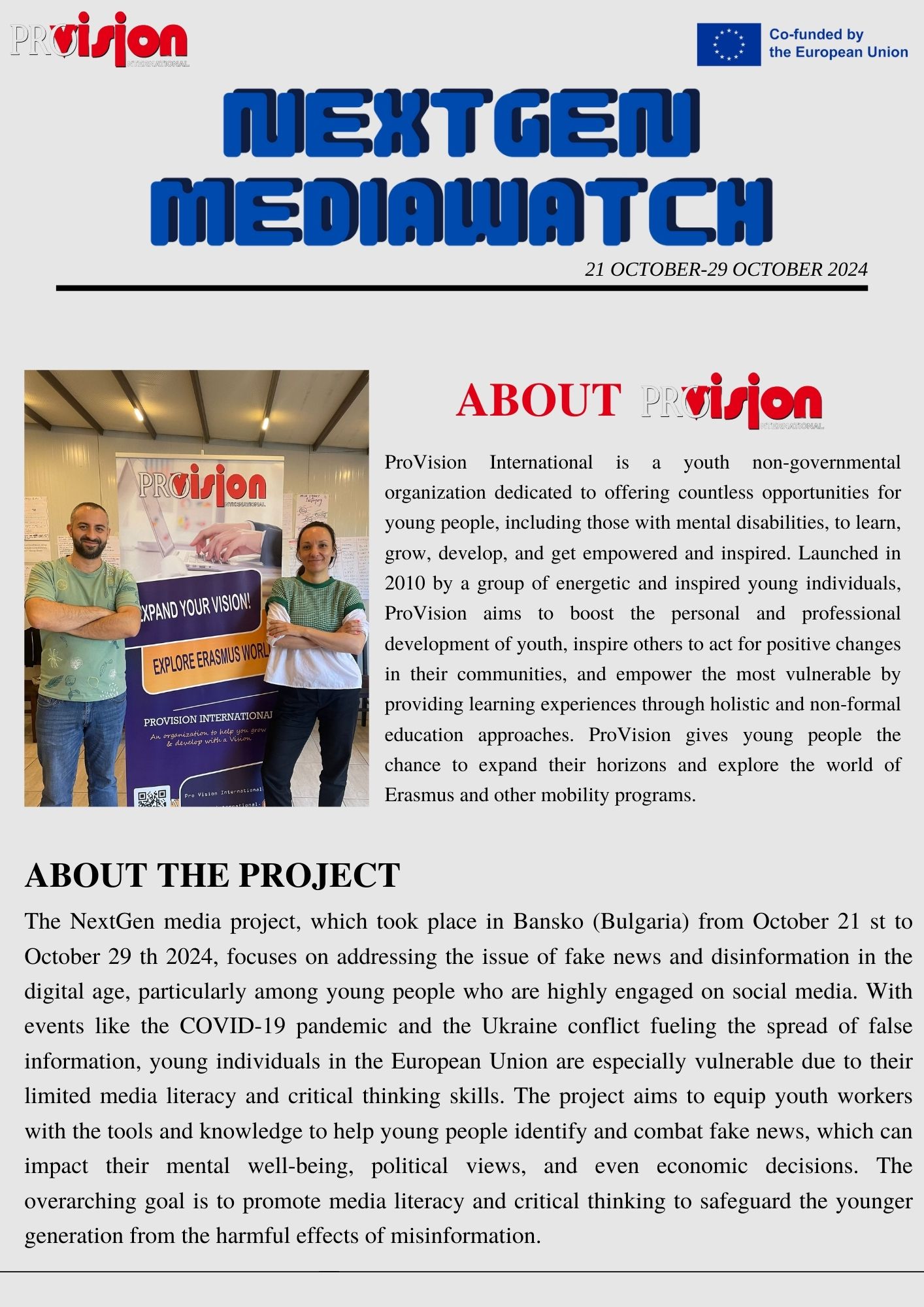Introduction to ProVision International and the NextGen MediaWatch Initiative
ProVision International, a youth NGO, focuses on empowering young individuals, including those with mental disabilities, through holistic and non-formal educational programs. Their latest initiative, the NextGen MediaWatch Project, hosted in Bansko, Bulgaria (October 21–29, 2024), tackled the pressing issue of fake news and disinformation in the digital age, especially targeting youth across Europe.
The Mission
With fake news proliferating due to events like the COVID-19 pandemic and the Ukraine conflict, the project aimed to enhance media literacy and critical thinking among young people. Participants, from countries including Romania, Italy, Spain, and Greece, gained tools to combat misinformation’s impact on mental well-being, political beliefs, and economic decisions.
Activities and Key Learning Points
- Interactive Sessions: Participants explored social media’s role in spreading fake news through activities like outdoor discussions, treasure hunts, and brainstorming on media literacy.
- Skill Development: Workshops on identifying misinformation, tools like the CARS checklist, and fact-checking tools were central to the program.
- Creative Engagement: Teams developed a media literacy dictionary, a board game, and engaged in an Escape Room challenge to apply their knowledge.
- Cultural Exchange: An intercultural night fostered camaraderie through food, music, and dance, enhancing the collaborative spirit.
Final Reflections
The program culminated in a celebratory ceremony, where participants received YouthPass certificates, acknowledging their growth and competencies. As a takeaway, the NextGen MediaWatch Project emphasized the importance of media literacy in creating an informed and resilient younger generation.
Funded by the European Union. Views and opinions expressed are however those of the author(s) only and do not necessarily reflect those of the European Union or the European Education and Culture Executive Agency (EACEA). Neither the European Union nor EACEA can be held responsible for them.

